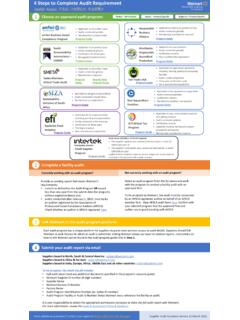Transcription of Quality Practice Guide - National Disability Services
1 Quality Practice Guide Contents Introduction .. 2 Evidencing Quality .. 3 Mapping the National Standards for Disability Services to the NDIS Practice Standards: Quality Indicators .. 10 Additional NDIS Practice Standards: Quality Indicators .. 22 Useful NDIS quick links .. 28 Resources to support principles, policy and Practice .. 28 References .. 28 Disclaimer The following information is general in nature and is not intended to provide legal advice or to warrant compliance with any legal requirements. This information in this document was researched and collated in February 2019 based on publicly available materials. It is subject to change and providers should check with the NDIS Commission for any updates on an ongoing basis. The Quality Practice Guide 2019 is licensed under a Creative Commons Attribution-Non Commercial-No Derivatives International License. You can share this document but not for commercial purposes.
2 You need to reference this document and NDS when using this Guide . 2 Introduction The National Disability Insurance Scheme (NDIS) Quality and Safeguarding Commission is an independent National body, established the National Disability Insurance Scheme Amendment ( Quality and Safeguards Commission and Other Measures) Act 2017 to protect and prevent people with Disability from experiencing harm arising from poor Quality or unsafe supports or Services under the NDIS. There are NDIS Commission Rules that Services and [Organisations] must follow to become and remain registered providers.. The NDIS Quality and Safeguarding Commission has been advising the sector that the audit process will have an emphasis on how people receiving supports and Services are experiencing their service. This document has been designed to build [Organisations] understanding of how to convert their principles, policies and procedures into Practice .
3 There are four core modules in the NDIS Practice Standards that apply to all registered NDIS providers. They are: Rights and Responsibilities Provider Governance and Operational Management Provision of Support. Support Provision Environment Providers may also be required to comply with additional supplementary modules for more complex supports including: High Intensity Daily Personal Activities Specialist Behaviour Support Implementing Behaviour Support Plans Early Childhood Supports Specialised Support Co-ordination Specialist Disability Accommodation Verification registered providers will be audited against the Standards and will be required to provide evidence on how the standards are being implemented in their [Organisation]. auditors will check a variety of reliable sources to corroborate and confirm claims. They will check whether the provider is meeting the expectations of people with Disability , families and carers and where appropriate, assisting them to attain their goals.
4 Governance and Practice will need to be proportionate to the size and scale of the [Organisation]. The National Disability Scheme Insurance (Provider Registration and Practice Standards) Rules 2018 specify the types of evidence that auditors are required to collect including: Information directly from people with Disability Information from family/friends/carer/nominees and/or independent advocates (with the person s consent) The documented support plan and evidence of the delivery of supports, to execute the plan All the supports delivered by the NDIS provider to the person. 3 Evidencing Quality Compliance with Acts of Parliament that document legal requirements in Australia Includes: State and Commonwealth legislation Any legislative amendments Regulations There are often standards associated with legislation or regulations Sample legislation NDIS ACT 2013 (Commonwealth) Disability Services Act 1993 (State) Disability Discrimination Act 1992(Commonwealth) Privacy Act 1988 (Commonwealth) Tips: Legislation changes from time to time, always check if you have the most recent version.
5 Join mailing lists to be advised when legislation is updated Regulations and Schedules which form part of an Act may be published separately. Policy is used by [Organisations] to show how the laws or other requirements are applied in their [Organisation]. Legislation 4 Documented describing [Organisation s] intent to apply certain principles and follow a particular course of action. Includes: Policy statement Scope Principles Key actions Definitions Other related policies Relevant legislation (See template for definitions) Example policies Rights Code of Conduct Eliminating Restrictive Practices Behaviour Supports Safeguarding- (preventing abuse and neglect) Supported Decision Making Conflict of Interest Delegations Governance Occupational Health and Safety Waste Management Confidentiality Vehicle Use Social Media Complaints Tips: Use plain English when writing policy Offer policies in alternate formats including easy read.
6 Check THE NDIS Practice Standards - Quality Indicators to identify many of the policies you need. Include people with Disability , families and staff in policy development. Ensure policies are culturally appropriate. Document your policy development process. Monitor implementation through engagement with people, their families and carers. Record policies on a register that includes review dates. Download: Policy development checklist Policy template Policy register template Policy 5 Documented explaining to staff how to put a particular policy into real life Practice . Work instructions that explain to staff how to undertake a specific task are based on procedures. Includes: Scope Roles and responsibilities Detailed actions Work instructions Relevant forms Example procedures Preventing Abuse and Neglect Investigations Complaints First Aid Vehicle use Medications Behaviour support Supported decision making Vacancy management Tips: Use plain English when writing procedures Include people with Disability , families and staff in developing procedures Test the process with people with Disability and staff before it is implemented Include hyperlinks to forms and systems within the procedure Codes of conduct and customer charters can be included in a procedure manual Download.
7 Procedure template Sample procedures in the National Standards for Disability Services Toolkit Procedure 6 A planned and repeatable group of business activities and focused actions that work behind the scenes in support of service delivery. Systems can be manual or digital. Includes: Scope Workflows Authorizations Templates Instructions Outputs Sample systems Governance Finance Human Resources including rostering, worker screening Information Management Complaints Occupational Health and Safety Incident reporting Risk management Client Management (including CRM) Records Strategic and Operational Plans Tips: Systems need to be proportionate to the size of the business, range of Services and complexity of Services . Make sure the governance system includes all high-level activities undertaken to manage the [Organisation] (such as high-level financial policies and Code of Conduct) so it provides an effective Guide for hands on operational service delivery.
8 Ensure you train staff on new or changed systems and keep a training register. Use the complaints and feedback systems to provide learning opportunities and inform a continuous improvement plan. Change champions can support staff to adapt their working styles to new systems. Download: Complaints templates and sample processes Continuous Improvement procedure Systems The actions staff take implement policy, procedures and any other obligations and requirements. It is the activities and behaviours that are experienced by people accessing Services and co-workers. Includes: Support to people with Disability and families Promotion/protection of Human Rights Applying procedures Following work instructions Applying Practice Standards Service planning Using forms, records and systems Governance Recruitment Worker screening Safeguarding Complaints/Investigations Marketing Reporting Continuous Improvement Worker health and safety Sample practices Service delivery Induction for people with Disability Worker orientation Complaints are used to improve service delivery File notes are accurate and timely Consultation/Co-design Using the NDIS portal Staff development and training including a training register Information is secure and private Incidents are investigated appropriately Communication Tips.
9 Actively seeking advice and insights about people s service experience can identify gaps in processes and opportunities for improvement. Asking staff about their experiences in delivering Services can identify barriers or challenges that limit choice. Develop a speaking up culture where all stakeholders can be confident they will be heard and their views respected. Practice 8 The actions staff take implement policy, procedures and any other obligations and requirements. It is the activities and behaviours that are experienced by people accessing Services and co-workers. Includes: Support to people with Disability and families Promotion/protection of Human Rights Applying procedures Following work instructions Applying Practice Standards Service planning Using forms, records and systems Governance Recruitment Worker screening Safeguarding Complaints/Investigations Marketing Reporting Continuous Improvement Worker health and safety Co-designing processes and policies can support [Organisations] to get Practice right.
10 A person s files and hand over notes can be used to record service activity. Agendas and minutes can be used to record business activity. Monitoring, review and evaluation are critical for good Practice and provide the basis for continuous improvement. Professional development processes can support staff who are not applying policies and procedures in a way that supports best Practice . Practice 9 Outcomes are evidence of the results created by the [Organisations]. They can be outcomes for people with Disability and families or [Organisational] outcomes. Personal goals or key performance indicators may be used to measure whether intended outcomes have been achieved. Includes: Person s preferences regarding community, culture, etc. are in service plans and used to support the person. People have made progress on their goals. People have completed a chosen task or activity. People with Disability (and families) are satisfied with the Services .

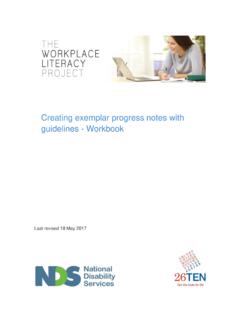

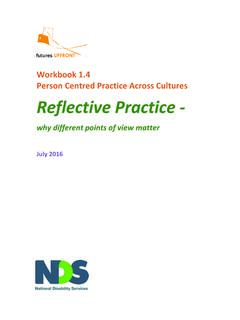
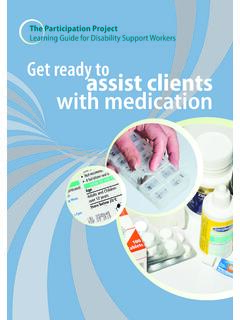
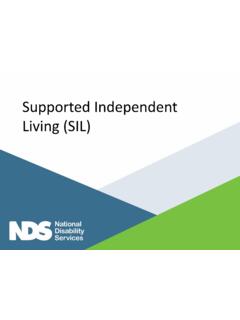
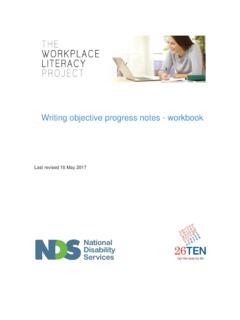




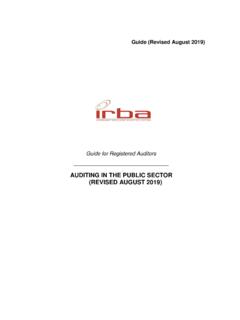
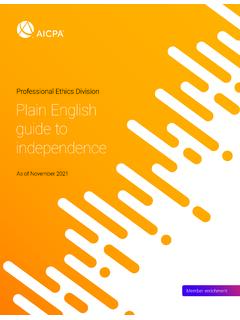
![Auditing Profession Act [ No. 26 of 2005] - Gov](/cache/preview/3/6/7/d/c/7/0/d/thumb-367dc70d0e66c63043b13ecf80490a21.jpg)
